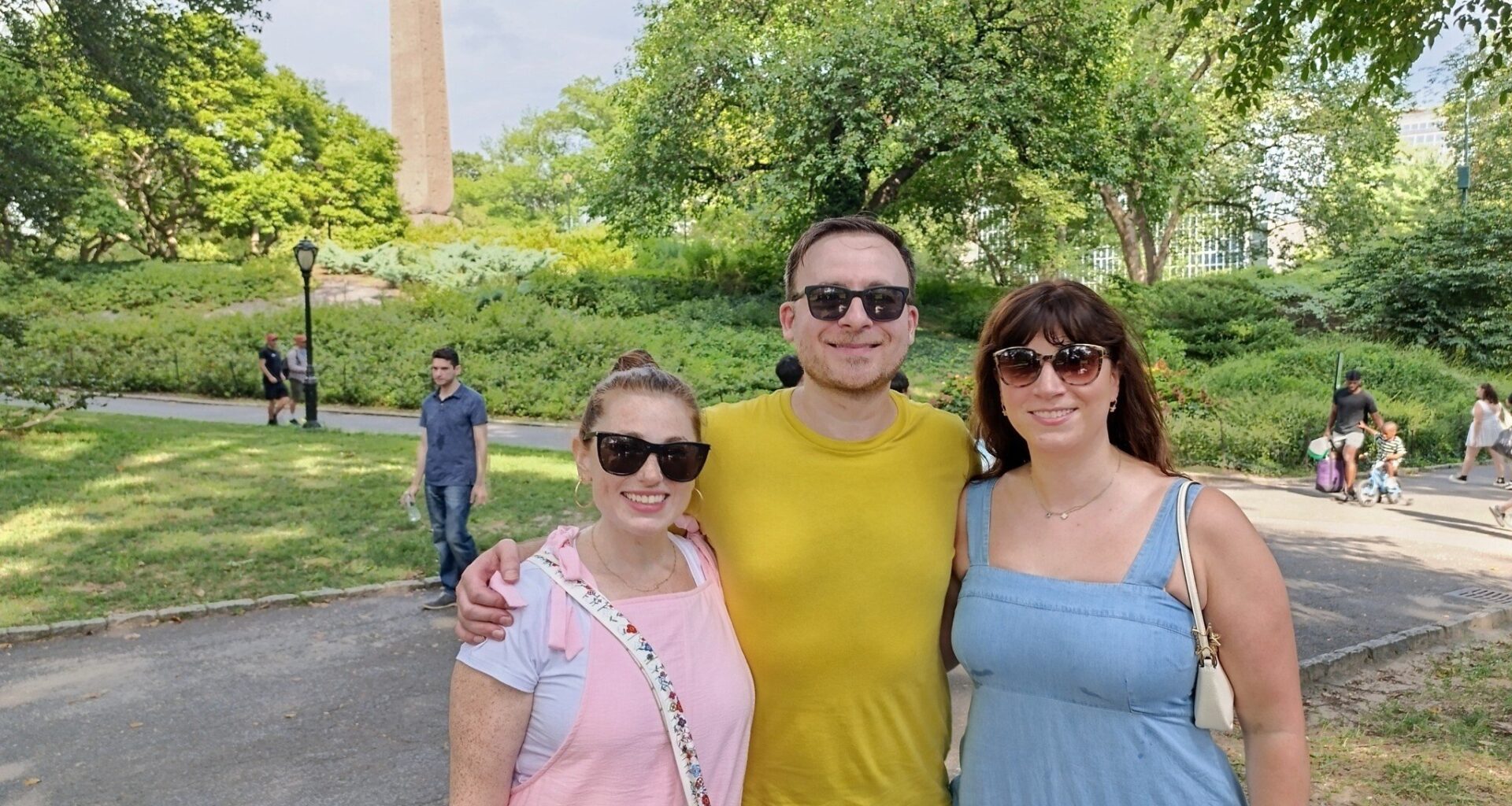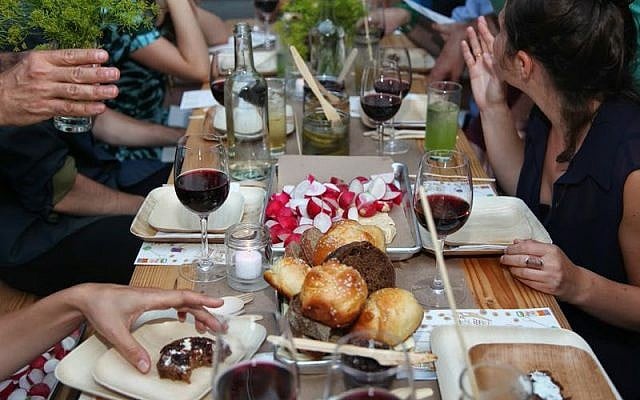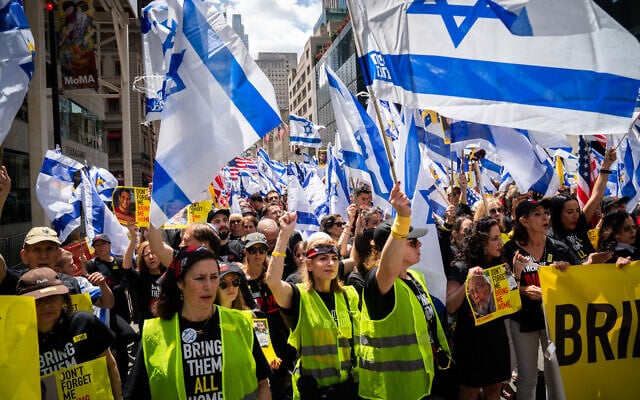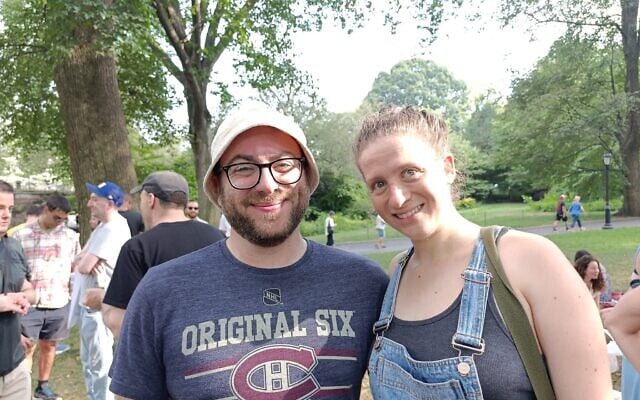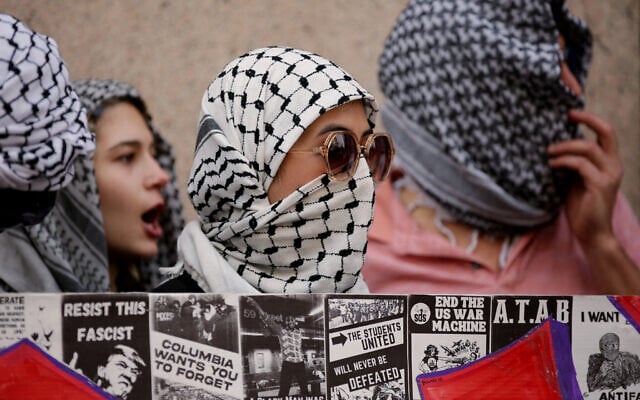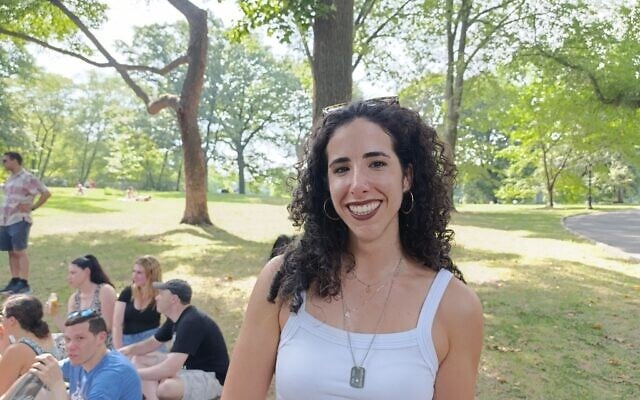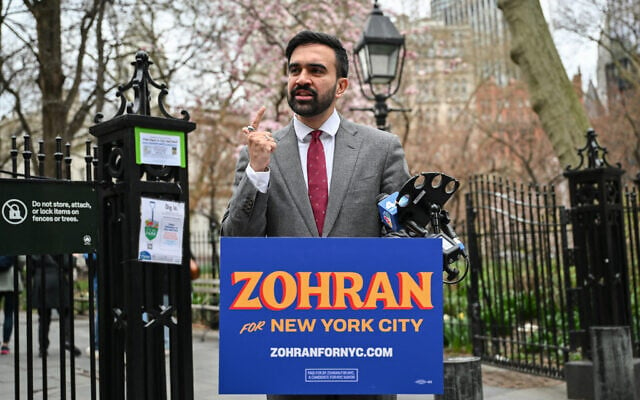NEW YORK — When Arkadiy Kantor created an online group to tell New York Jews about in-person social events during the COVID pandemic, he had no idea that it would be helping his friends find refuge from antisemitism just a few years later.
But as a few dozen Jews aged 25-45 gathered for an informal picnic on a humid summer day in the city’s Central Park on Sunday, The Times of Israel found a meetup providing more than just companionship for a population still reeling from the aftermath of the October 7, 2023, Hamas attack on Israel.
While New York City is home to more than a million Jews, the largest Jewish population in the world, and plenty of Jewish institutions, synagogues and restaurants, many residents have struggled to develop personal Jewish social networks, particularly among young, unaffiliated and single Jewish professionals, such as the majority of these picknickers.
“Since October 7, a few new organizations have popped up in the city for people who are Jewish but were never active in a Jewish community before,” Kantor said. “People often tell us when they sign up for events that they lost their non-Jewish friends after the war started, and they are looking for new friends they can identify with safely.”
Kantor created Jewish Social Community (JSC) in 2021 using WhatsApp and Google Docs to share information about social events during a time when Zoom dating was replacing in-person meetings due to pandemic restrictions. As interest grew, he and some volunteer admins built a website, and they saw traffic quickly spike in the weeks and months after October 7.
Get The Times of Israel’s Daily Edition
by email and never miss our top stories
By signing up, you agree to the terms
“There are people here who lost nearly all their friends at that point, either because they had disagreements about Israel or they were getting picked on by their communities,” Kantor said. “So hopefully, we have an opportunity to help them make new friends, and sometimes find romantic relationships, with people who are more aligned with their identities.”
While those associated with synagogues or other Jewish institutions are often able to find community more easily, unaffiliated Jews often have to take more initiative, said Hindy, a JSC administrator who asked for her last name not to be used.
“There are a growing number of people organizing Jewish picnics and hikes without any sort of political messages or judging anyone for their religious observance,” Hindy said. “We just want to have a good time with friends and live a meaningful life.”
Illustrative: A Shabbat meal. (Gefilteria/Shulie Seidler Feller)
While dating apps like Hinge and Bumble have been popular in recent years, people are now seeking more in-person interactions, leading to an explosion of singles events, particularly after October 7, several said.
Among notable initiatives are Jewish running groups like Nice Jewish Runners and Trybal Gatherings, a sort of Jewish summer camp for adults, as well as a variety of Shabbat meals people organize for people with different religious and cultural identities, added Ally Zoll, a participant at the picnic.
Public events like the city’s annual city’s pro-Israel parade also serve to help strengthen communal bonds, she added.
Israel Day on 5th in New York City, May 18, 2025. (Luke Tress/Times of Israel)
Some people said the events of October 7 made them rethink other aspects of their social lives, as well.
“Before the war, I didn’t really care about religion or ethnicity in dating,” said Josh Pilch, a resident of Connecticut who came to Manhattan specifically for the picnic. “Like, dating someone Jewish was nice, but it wasn’t a deal breaker. Now, for me and a lot of other people, it has become a hard requirement. Either you are Jewish or you are willing to convert. End of story.”
Reacting to antisemitism
With antisemitism skyrocketing in New York and around the US since the October 7 attacks, the picnic-goers gave differing accounts of how their lives have changed over the past 22 months.
In 2024, a record 9,354 cases of harassment, vandalism, and assault were recorded in the US, according to the Anti-Defamation League (ADL). In New York City, more than half of all hate crimes are directed against Jews.
Michelle Levine, a 24-year-old graduate student with Latin American roots, said she was previously part of a community advocating for minorities at her university. After October 7, she was publicly shamed for supporting Israel and shunned by her friends for “invading Black spaces,” she recalled.
Now, she frequently feels isolated and is often afraid to wear Jewish symbols like a Star of David necklace in public.
Michelle Levine and Josh Pilch at a Jewish community picnic in Central Park, August 17, 2025 (Zev Stub/Times of Israel)
“I feel like it’s so hard to socialize these days outside the Jewish community, because it’s like everybody hates us,” Levine said.
Jonathan B, who asked not to share his last name, said he has recently noticed more people wearing keffiyehs around New York in solidarity with the Palestinians.
“I saw five or 10 people wearing them in the park on the way over just now,” he said. “I thought about saying something to them, but it’s probably wiser that I didn’t. I don’t feel afraid of antisemitism in Manhattan, but I do feel threatened when I see things like that.”
Pro-Palestinian, anti-Israel protesters wear keffiyehs as they march from City College to Columbia University against the Trump administration’s policies and to demand “liberty, solidarity and accountability” from their universities, in New York on April 25, 2025. (Leonardo Munoz/AFP)
Sivan Salem, a Brooklyn resident, said that seeing anti-Israel graffiti or signs around the city makes living in New York feel “heavy.”
“I don’t feel unsafe, but there is a heaviness seeing these direct attacks on my people,” said Salem.
Nonetheless, she insists on wearing a necklace supporting Israel’s hostages every day as a signal of her identity.
“Often, if I see someone else in the street wearing one, we’ll give each other a knowing nod,” Salem said.
Brooklyn resident Sivan Salem at a Jewish community picnic in Central Park, August 17, 2025 (Zev Stub/Times of Israel)
Everyone we spoke to said they were deeply concerned about the likelihood that Zohran Mamdani will be elected mayor of New York City in November. Mamdani, a clear frontrunner in the polling, is an outspoken supporter of the Palestinian cause, and many are worried that life in the city would become significantly more hostile towards Jews under his leadership.
Mamdani has been a vocal supporter of the anti-Israel Boycott, Divestment, and Sanctions (BDS) movement, and has refused to condemn the use of the phrase “Globalize the Intifada,” which many view as a call to violence.
New York City mayoral candidate Democratic State Representative Zohran Mamdani campaigns in New York City on April 16, 2025. (ANGELA WEISS / AFP)
“The idea that Mamdani is going to win the election scares the shit out of me, and actually makes me question my being in New York City,” Salem said. “Some people say nothing will change in day-to-day life here, but when someone with that kind of rhetoric comes into power and sets the zeitgeist of the city, I don’t want to stick around to see what happens. I’m actually planning to visit Israel in November to explore what it would be like to live there if he wins. And I’m not the only one thinking that.”
Others echoed her fears, but weren’t yet thinking of leaving their city.
“I think he’s the worst type of dangerous,” added Jonathan B. “He says beautiful words about social justice and peace and equality, but when synagogues and Jewish businesses are attacked, it is going to be a harsh reality check.
“I’m not going to let him destroy my city,” he said resolutely. “We were here first.”
